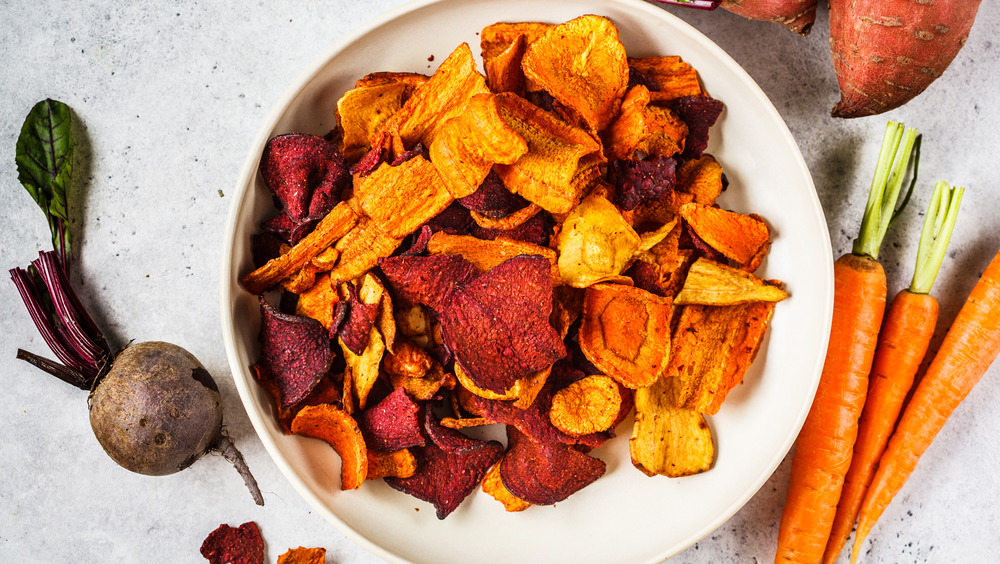Why Veggie Chips Aren't As Healthy As You Might Think
Despite knowing that eating more vegetables is a necessary evil, most humans prefer to go out of their way to avoid them. Whether the strong feelings stem from not liking the taste or not liking the texture, Elemental reports that one in five folks can't stand them. Clare Collins, Ph.D., a professor in nutrition and dietetics at the University of Newcastle in Australia, explained that the aversion to veggies can stem from people being so-called "super-tasters" for whom vegetables are especially bitter.
Because people are so averse to these healthy foods, folks everywhere have been trying to find alternative ways to get their veggie intake up. One such way has been by consuming veggie chips, which many people might think are healthier than potato chips while still being tasty. However, this is a massive misconception. Thinking they're different might already be questionable because potatoes are technically vegetables, too, but more importantly, veggie chips aren't that different from potato chips nutritionally.
Veggie chips seem healthier because of the health halo effect
The misconception that veggie chips are much healthier than potato chips is in part due to something called the health halo effect. The blog of registered dietitian Hannah Magee says this happens when foods are deemed healthy by consumers without evidence because of some perceived benefit, like how granola bars with probiotics might be seen as healthy but normally pack a fair amount of sugar and are low in beneficial nutrients. Veggie chips might seem healthier because they contain vegetables, but that doesn't necessarily mean that they are healthier.
Caroline Meehan, a registered dietitian and nutritionist at the University of Maryland Medical Center, revealed to Time that veggie chips actually contain potato starch or potato flour and noted that deep-fried snacks aren't "going to contribute to your daily vegetable intake in a way that supports overall health." Cooking Light also asserts that unless you make your veggie chips at home, they are likely only 60 to 70 percent actual vegetables.
The UT Austin Think Twice blog explains that instead of containing all the zucchini you might expect, veggie chips are often made of potato starch, tomato paste, and spinach powder and colored with beetroot powder. Self says that a 1-ounce serving of regular potato chips can come in at around 160 calories, 10 grams of fat, and 16 grams of carbs. The same serving size of veggie chips is about 150 calories and only has 1 less gram of fat and carbs.

